Hit Disney+ show Paradise has prepped us for one hell of a season finale
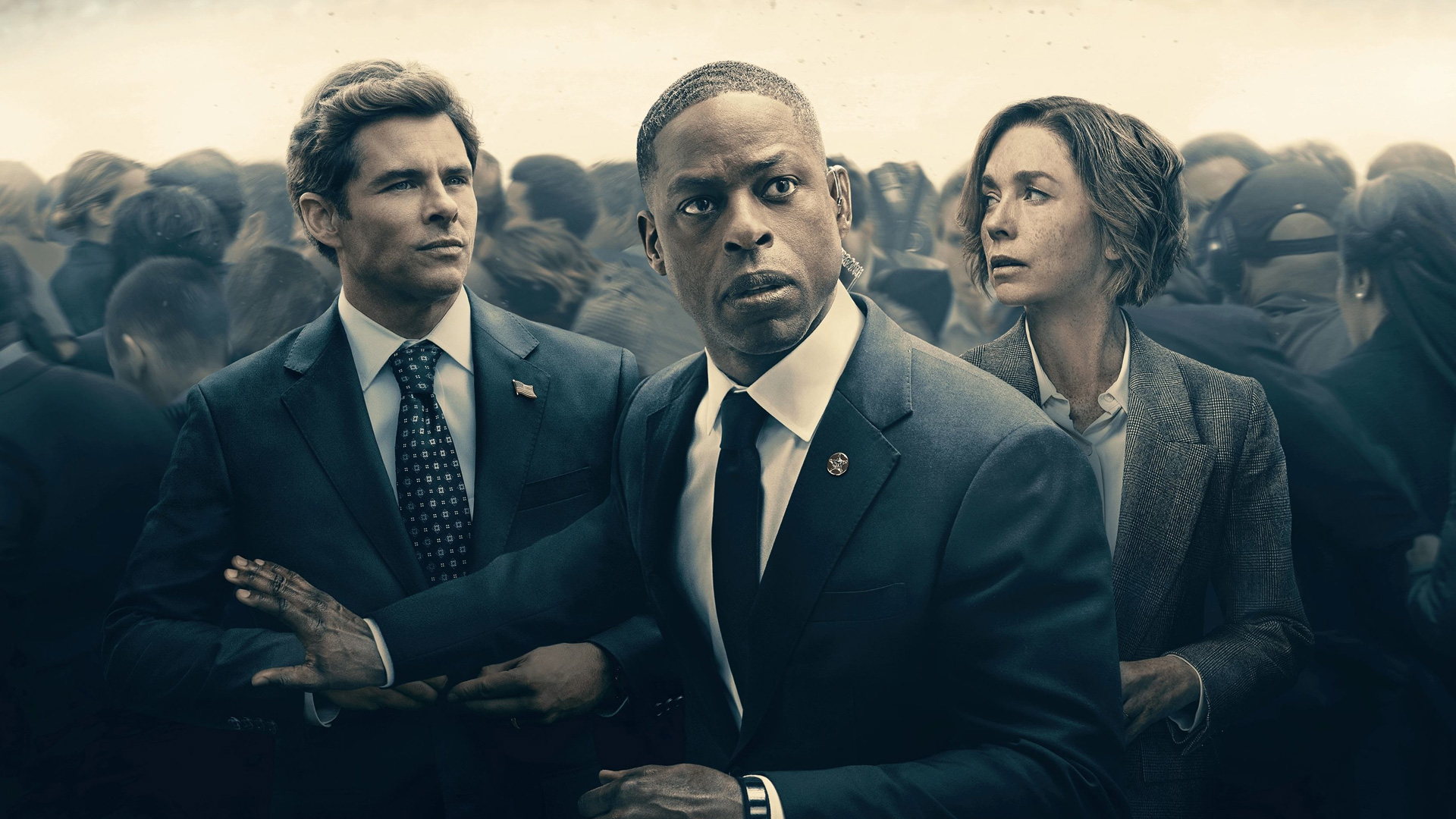
With the final episode of the season about to drop, Liam Maguren looks at how new hit Disney+ show Paradise has prepped us for a mighty climax.
In a world where trailers seem almost engineered to tell you everything that happens in the film/show you haven’t seen yet, I feel like the team behind Paradise deserve some kind of award for selling the hit Disney+ show without popping the lid on its big conceit. We were prepped for a star-powered secret service thriller. We ended up with something a lot more… well… prepper-y.
As we head into the first season’s finale, comforted by the knowledge that a second season’s been given the green light, it’s a fitting time to dive into the show’s true premise as well as the deeper thread piercing through all the episodes.
This might sound annoyingly vague to anyone who hasn’t jumped on this series yet. My advice: give one episode a shot. If it hooks you, you’ll stay hooked.
(And if you’re up to date, you can read on because this piece contains spoilers for episodes 1 – 7.)
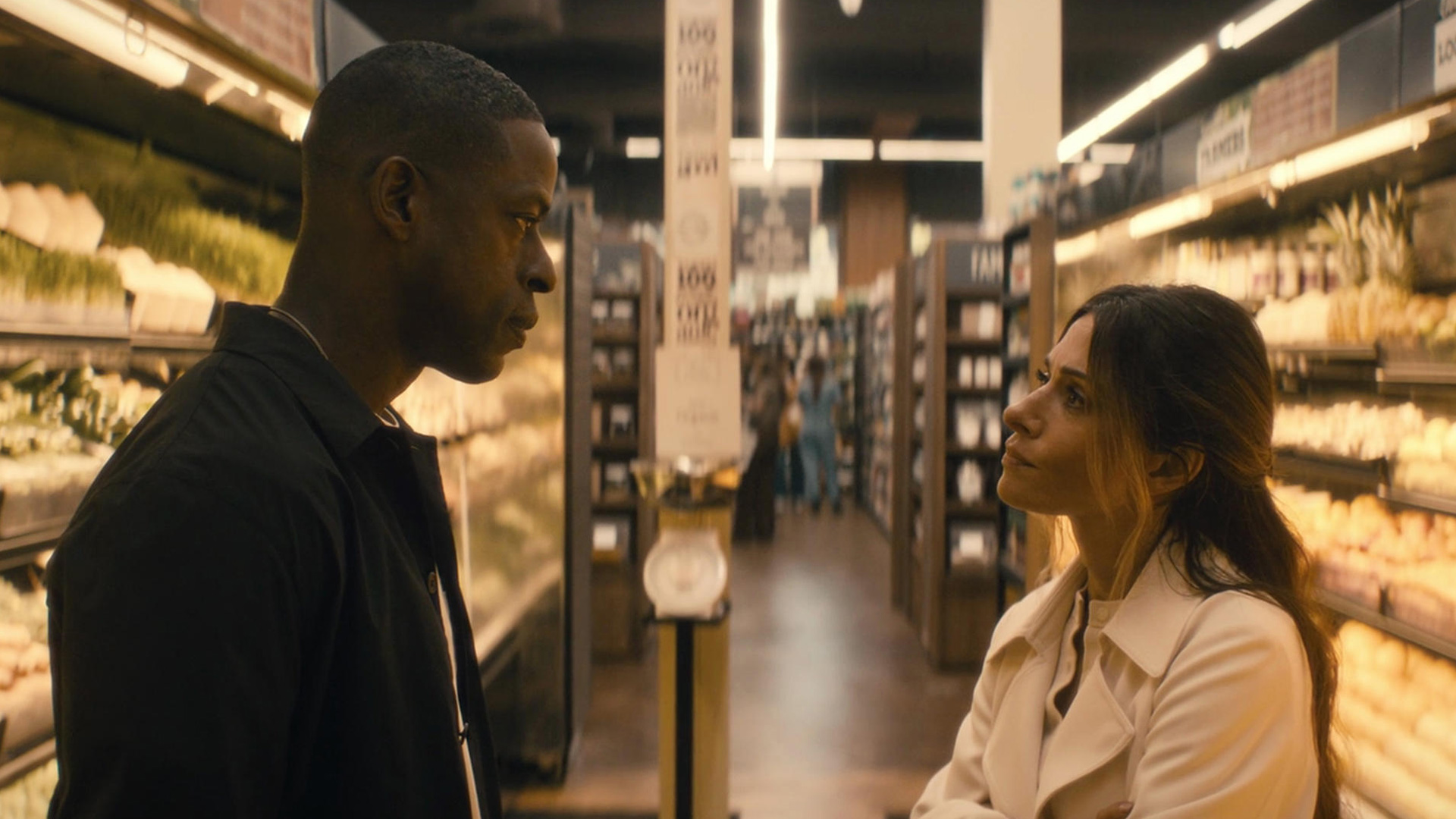
I would’ve been happy to see the magnificent Sterling K Brown investigate the murder of a US President in any just-add-water crime-mystery series. The embodiment of the show, Brown’s agent Xavier Collins keeps a lot to himself, but not in the Silent Stoic Manly Man kind of way. Though his job demands discretion and nerves of steel, Collins knows how to switch back to being a loving father and caring friend when he’s off the clock.
Naturally, the lines get blurred when he suspects the President’s death might be an inside job. “Not a shocking twist,” I arrogantly thought to myself, completely unprepared for episode one’s end reveal that the suburb of Paradise is actually a gigantic, Truman Show-esque doomsday bunker dressed up as a functioning society.
It slapped the smug straight off my face. And I loved it.
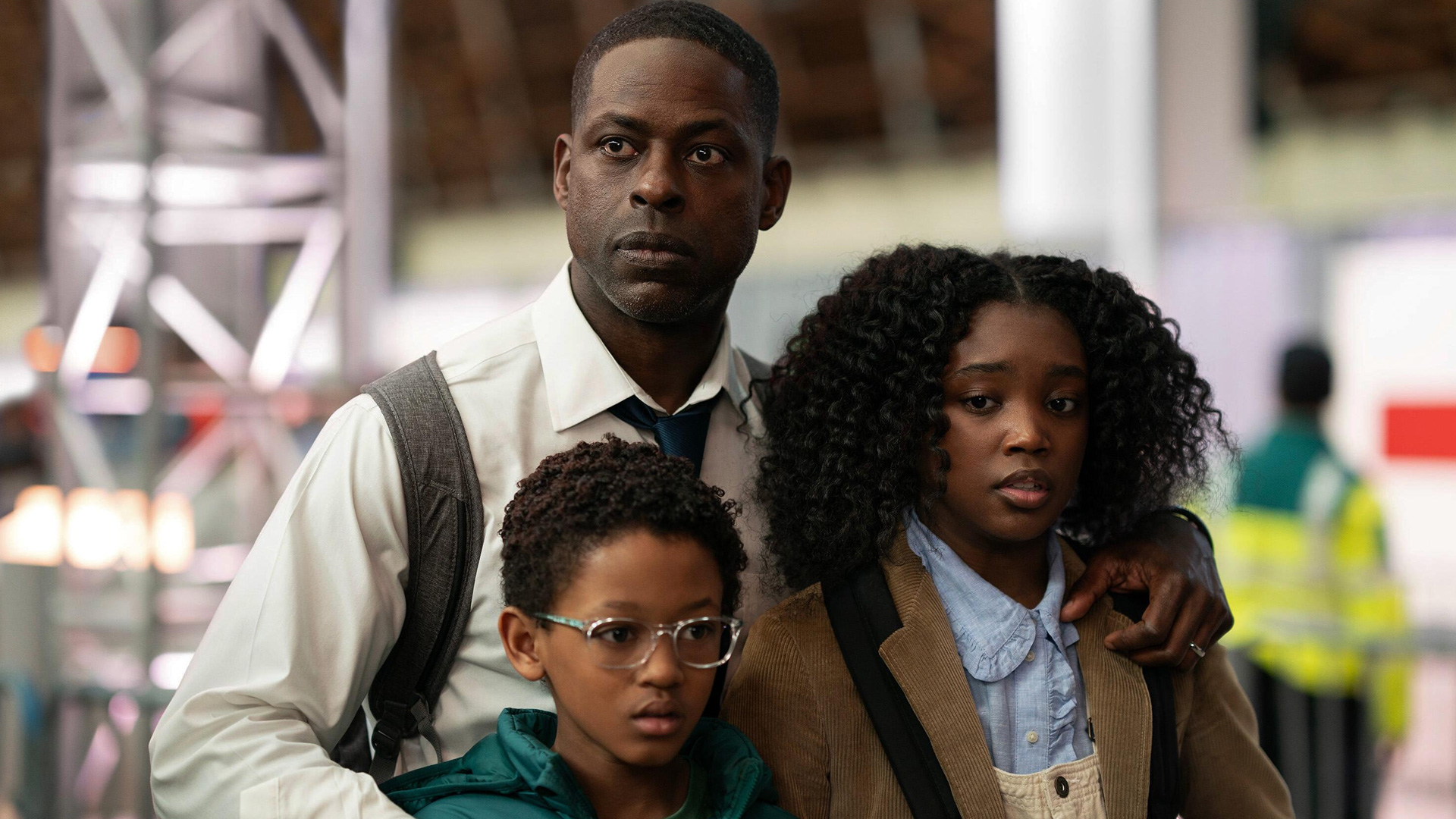
Sterling K Brown (left) as Xavier Collins
I can’t recall the last time, or any time, a show pulled such a rope-a-dope in its opening ep. But, boy, what a fantastic surprise and a great payoff for anyone who took a punt on this series.
The following episodes chipped away at the intrigue. Why are they here? How does this place operate? What happened to the outside world? Is there even an outside world any more?
And then there’s the original, presumably stale question: “Who killed the President?” Parts of the mystery play out in typical follow-the-breadcrumbs fashion, but you’re constantly left wondering about the role he played that got everyone into this Dark City mess.
It also helps to have the always-fantastic James Marsden as President Cal Bradford. The actor’s tailor-made to play the POTUS, not just because of his boy scout handsomeness, but also due to his dual talents as both a comedic and dramatic actor.
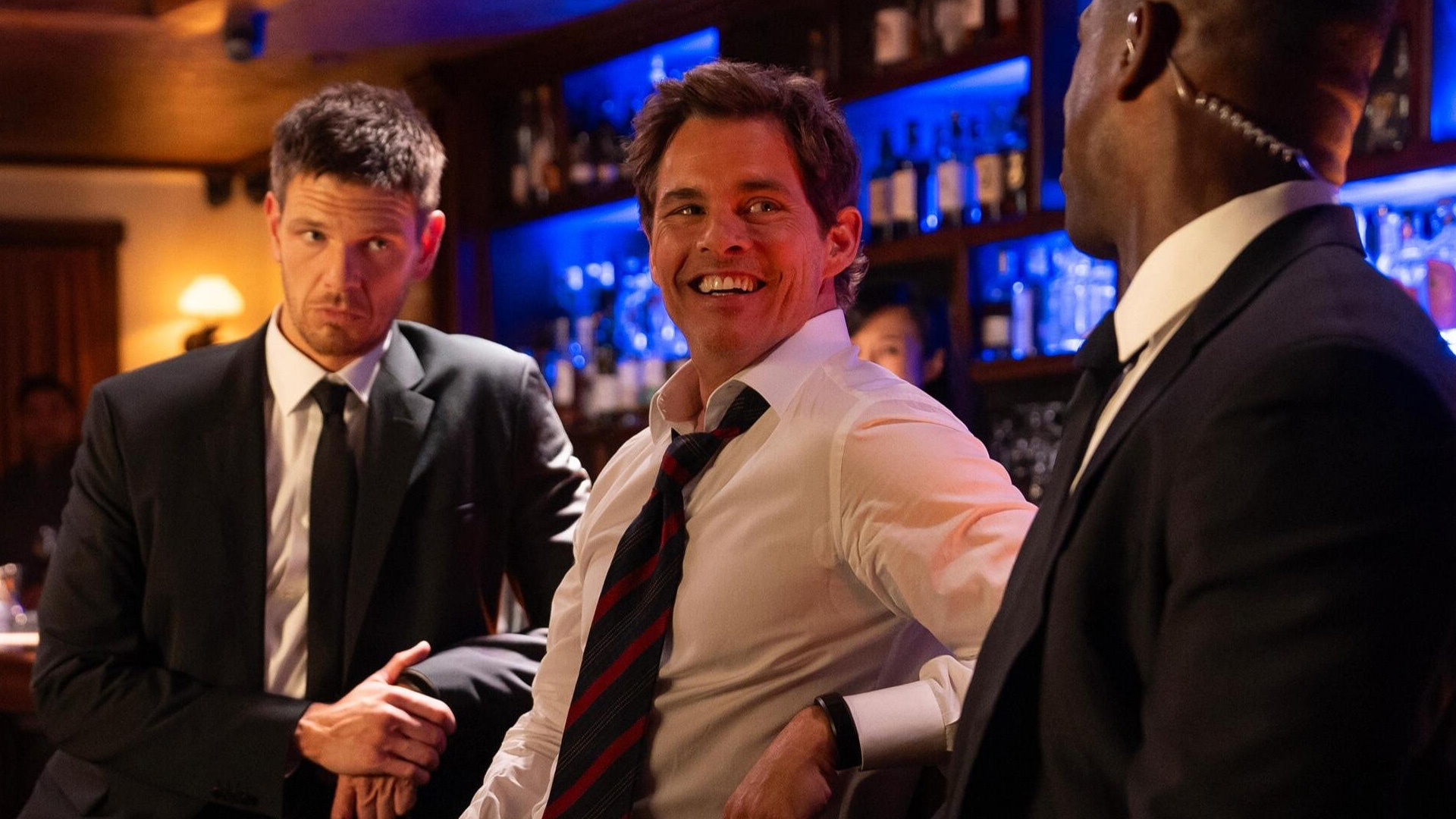
James Marsden (centre) as President Cal Bradford
Avoiding comparisons to any former or current presidents, Cal’s the type of man who switches between smugness and sincerity if and when the time calls for it. He wears his jokey jock hat when he needs to make an impression, like when he tells Xavier he wants him as his personal bodyguard partially because hiring a Black man is good for optics (to which Xavier, rightly, argues it might not be).
However, as we come to learn more about Cal’s personal history, it’s clear he’s been groomed for this position by a wealthy father looking to prime his family name for the history books. Fully aware of his standing as a nepo baby, Cal’s presidential life would be easier if he just played to the delusion that he earned this position.
But he’s a man cursed with a conscience and enough self-awareness to see the bullshit of his standing, making him a compellingly fallible character you eventually want to root for. Too bad he’s dead.
Xavier has a much more loving relationship with his father, the first Black man to pilot a commercial American aeroplane. It’s a legacy to be proud of, but as Xavier would come to discover, that pride can turn to sin. With his dad unwilling to face the realities of his Parkinson’s disease, Xavier does the responsible thing and forces him into early retirement, knowing full well it’ll fracture their rock-solid relationship.
All legacies must end. Some gracefully, others chaotically. This is the grand theme hanging over Paradise.
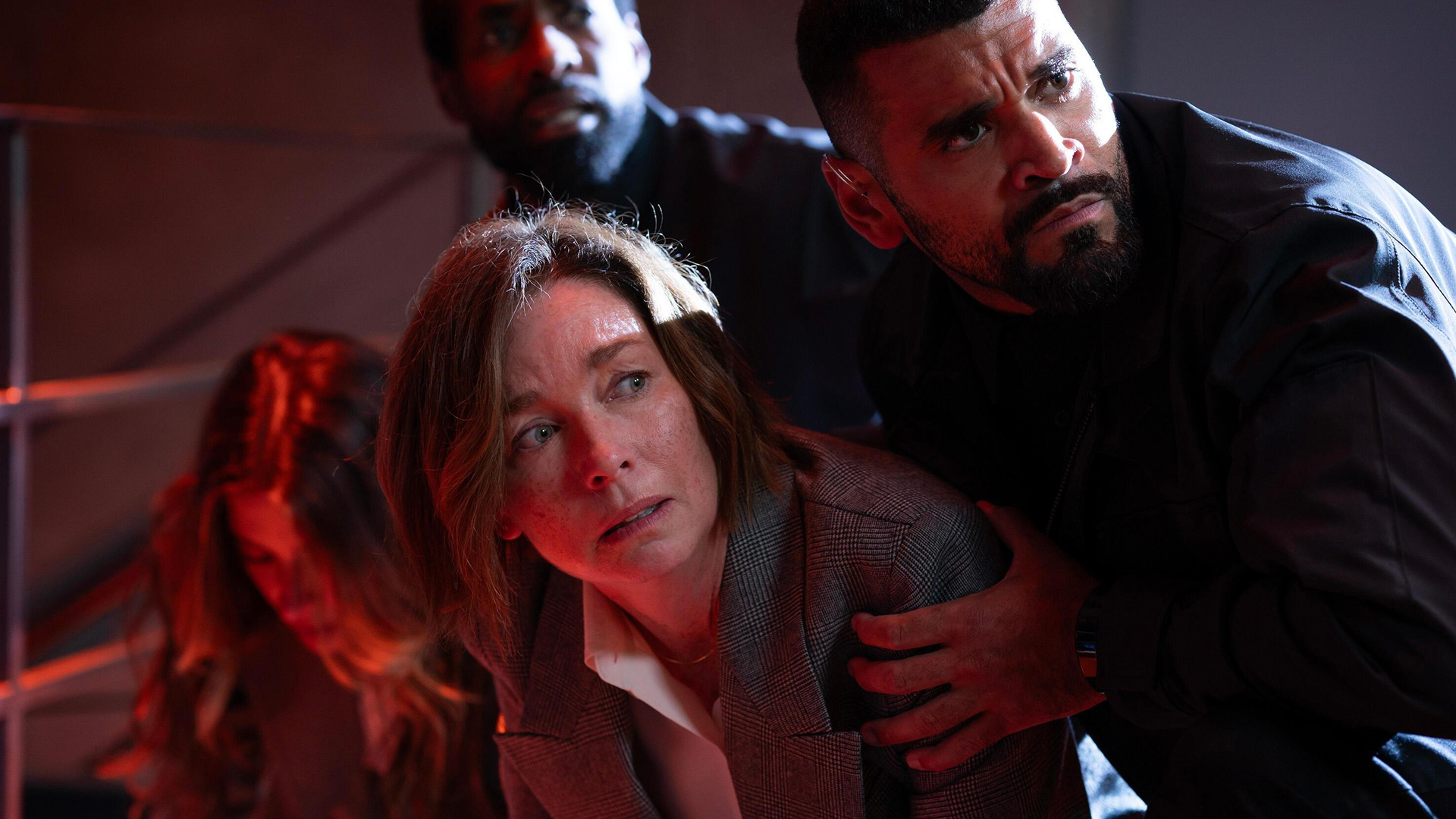
Julianne Nicholson (centre) as Sinatra
This leads to Mare of Easttown’s Julianne Nicholson as a mega-rich tech head who goes by the codename Sinatra. Yes, you could call her the Musk to Cal’s Trump with her soulless eyes, manipulative ways, and a face locked in a constant state of “Who farted?” But there is a slither of humanity to her (something I can’t confirm about Musk) that anchors her need to preserve Paradise.
While the doomsday bunker of Paradise can withstand the destructive forces of the outside world, the societal illusion of Paradise is incredibly fragile. Sinatra knows this and is willing to kill to keep her creation from crumbling. Even if that threat comes from the knowledge that Earth might be, in fact, liveable after all.
Sinatra desperately argues for Paradise being the most liveable place on Earth. But really, by keeping people in the dark, she’s preserving a legacy of her own—this massive fake town she spearheaded. Given how much of that town reflects her country and culture, she is, by extension, attempting to preserve the legacy of America. And that legacy is not sustainable.
(I don’t need to draw parallels between this show’s America and our current America. I’m sure you’ve connected those dots already.)
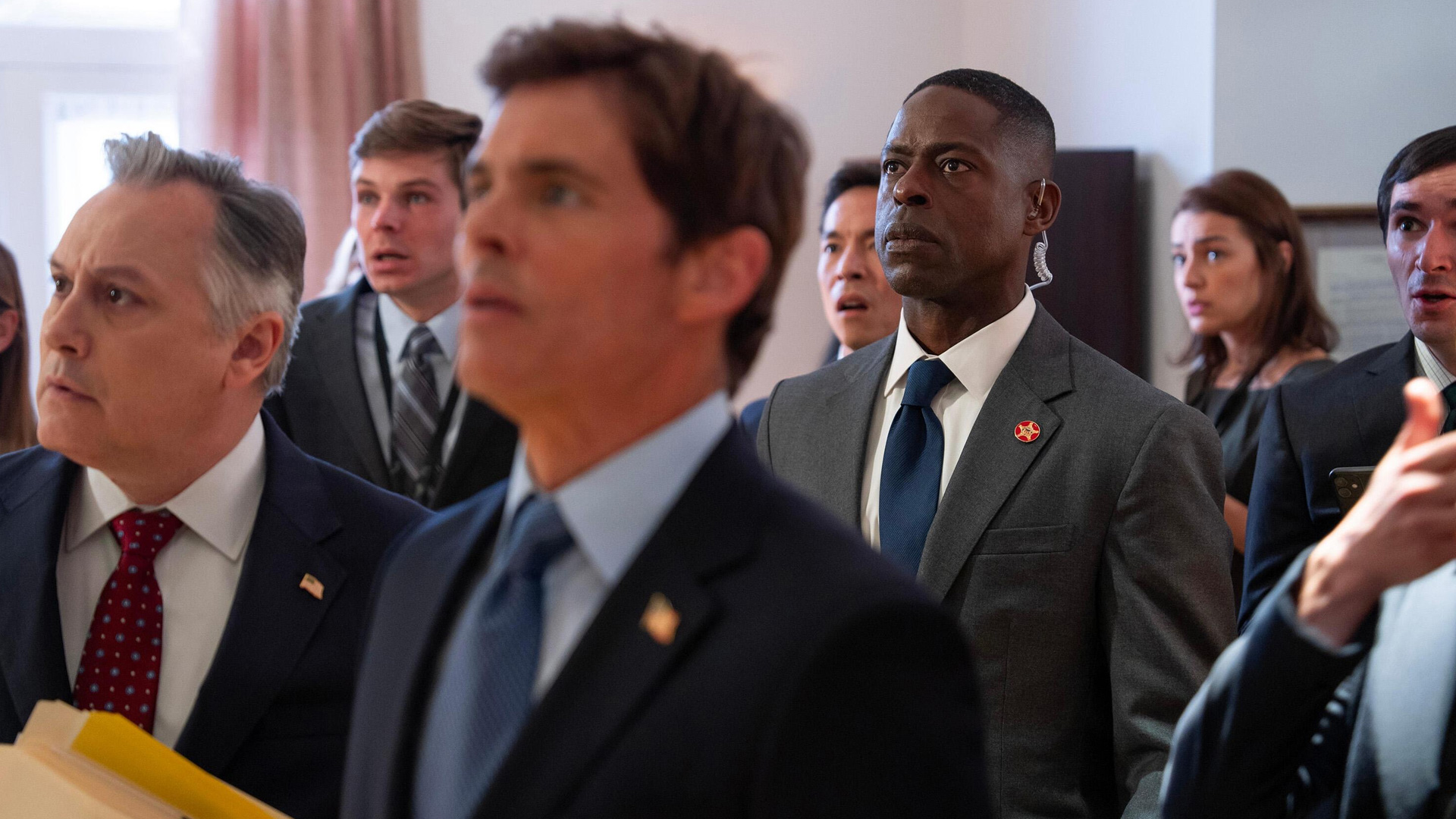
Ultimately, we saw how quickly legacies—a personal one, a family one, a national one—can be rendered meaningless in Paradise’s seventh exhilarating, terrifying, expertly chaotic episode The Day. If it wasn’t horrifying enough to see Australia and New Zealand immediately destroyed by the show’s world-ending killer wave, we also had to see the US contend with nuclear weapons being fired from unknown places looking to make land grabs.
In Cal’s boldest moment, he comes to realise the futility of the situation, re-addressing the American public not as a clinically political President, but a leader of his people who knew what he had to do—no matter how it made him look.
We now see Cal’s duality split between Xavier and Sinatra. He wants to do what’s right by the survivors. She wants to maintain this manufactured slice of America. With the added knowledge that Cal made the Thanos-snapping decision to trigger the globe-spanning EMP, we’re heading into one hell of a season finale.
However this final episode plays out, it’s perhaps safe to say that Paradise’s most startling achievement might not actually be how it hid its premise from marketing materials, but how it cleanly shows the difference between preservation and survival. Then had us rooting for the latter.



















